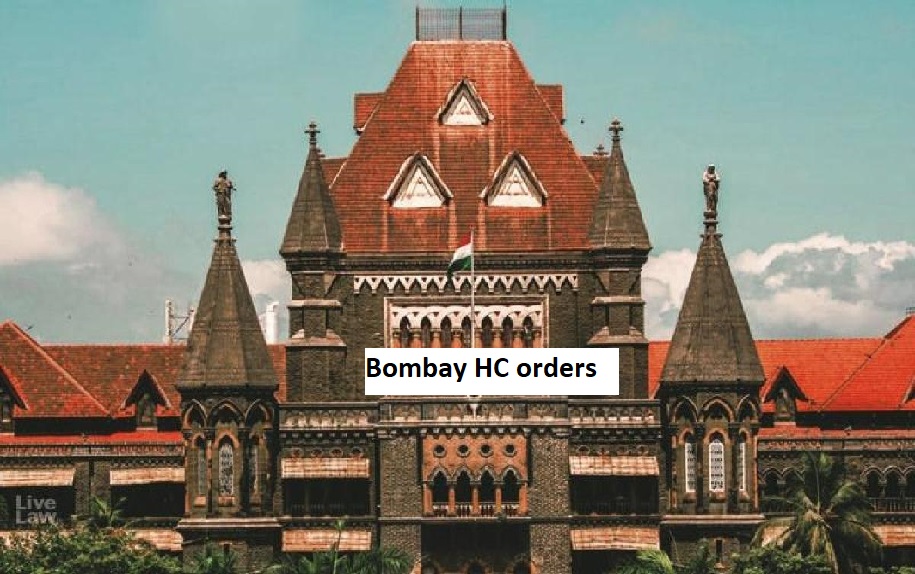


The Bombay High Court instructs the Maharashtra CID to probe five police officers for demolishing tenants' premises during their alleged unlawful detention and coercion to surrender their tenancy.
Justice RM Joshi at the Aurangabad bench determined that the police actions were not part of their official duties, thus negating the need for Section 197 CrPC sanction for prosecution.
The court noted that a preliminary examination of the facts suggests that the petitioners may have committed cognizable offenses. Therefore, the Magistrate's decision to order an inquiry under Section 202 of the CrPC, rather than initiating an investigation under Section 156(3), was not appropriate.
The High Court rejected several petitions from the original landlord's brother, property purchasers, and police officers. These petitions challenged a Sessions judge's order that called for a CID investigation and the registration of an FIR under Section 156(3) of the CrPC.
In 2021, a landlord sold his flats to a third party. Later, the tenants filed a civil suit for an injunction against the landlord and the purchasers. In March 2022, the landlord tragically took his own life, attributing blame to the tenants. Twenty-five days after his death, the police called the tenants to the station for questioning and wrongfully detained them while their homes were demolished with the use of JCBs.
The tenants were purportedly pressured into signing letters relinquishing their tenancy to the landlord's wife. To address this, the tenants submitted an application to the Magistrate, requesting an FIR under Section 156(3) of the CrPC. When the Magistrate only initiated a police inquiry under Section 202 of the CrPC, the tenants were left with no choice but to seek redress from the Sessions court.
The Sessions court granted the application, issuing orders for an FIR against the accused and also calling for a CID investigation.
All three petitions presented to the High Court asserted that no offense had been committed and that the tenants had voluntarily surrendered their tenancy. The purchasers claimed they had no involvement in the transaction, and the landlord's brother maintained that he had no firsthand knowledge of the events.
The police officers, on the other hand, argued that they couldn't be investigated without prior departmental sanction under Section 197 of the CrPC. They further contended that once the Magistrate had acknowledged the complaint and issued directions under Section 202 of the CrPC, it was not possible to subsequently order an FIR under Section 156(3) of the CrPC.
Finally, they contested that the Sessions court lacked the authority to order a CID investigation when such a request had not been explicitly made
Initially, the court noted that it couldn't be conclusively stated that the Magistrate had indeed taken cognizance of the matter, as the case had only been put up for verification, a routine procedure by magistrates. Taking cognizance necessitates a careful consideration of the case, which was not evident from the initial order issued by the court before the petitioners turned to the Sessions Court for relief.
"Furthermore, the applicants (tenants) had specifically sought directions under Section 156(3) of the Code of Criminal Procedure. If the Magistrate was disinclined to issue such directions, he had the option to outrightly dismiss the applications."
The court observed that an amendment to Section 156(3) of the CrPC prohibited Magistrates from initiating proceedings against Public Servants without the requisite sanction under Section 197 of the CrPC for acts carried out in the line of duty. Nevertheless, the court emphasized that this amendment mandated that the Magistrate must first establish their conviction that the acts were not carried out as part of their official duty before directing the registration of an FIR against them.
"It cannot be accepted that no offense can be registered or investigated against a public servant, even when the act in question has no relevance to the fulfillment of their official duties."
The bench also dismissed the argument that Magistrates lacked the authority to determine whether the alleged acts were performed in the line of duty or not, emphasizing that such a determination was not solely within the discretion of the sanctioning authority.
The court stated, "It is neither evident from the relevant provisions nor would it be suitable to entrust the decision, which necessitates the application of a thoughtful and impartial judgment, to the discretion of an Administrative Authority."
In determining that the Revision court lacked the authority to instruct the CID to conduct the investigation, the High Court invoked its jurisdiction under Section 482 of the CrPC to mandate the CID investigation, assigning the task to an officer of at least the rank of Deputy Superintendent of Police.
TAGS: Amendment to Section 156(3) of the CrPC Public Servants and Sanction under Section 197 of the CrPC Judicial Discretion in Determining Duty-Related Acts Magistrates' Authority to Decide on Duty-Related Acts.